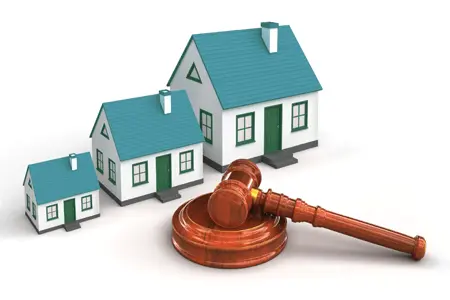When is a Property Owner Liable For Injuries That Happen Off Their Property?

This article discusses Property Owners and Liability for Injuries Not on Their Property. All owners of real estate in California are at risk for being liable for injuries that occur on their premises or property. When an owner has possession or control of the property, and it can be established they had knowledge of a dangerous condition, they are at risk.
Real estate attorneys advise their clients on the duty of care and that to establish liability the injured party must show that a property owner breached the duty of care that was the (proximate) cause of the injuries or damages. But what about injuries that occur off the property? A landowner in California was surprised and disappointed to learn that they may have liability for an injury that occurred to someone who had not been on the their property.

In the case of Annocki v. Peterson Enterprises, LLC, a vehicle which exited the defendant’s restaurant parking lot collided with and killed a motorcyclist. The biker’s parents brought this suit for damages. The restaurant parking lot faced the Pacific Coast Highway, and there was a divided median. The patron left the parking lot and tried to make a left turn into oncoming traffic. The plaintiffs claim that the owner was negligent in that the design of the driveway created a decreased visibility of the adjacent highway. There were no signs indicating “right-turn only”.
The court first reviewed the law on determining whether the owner had a duty to someone off the premises. The California Supreme Court has determined that this requires balancing of a number of considerations; the major ones are: 1) the foreseeability of harm to the plaintiff; 2) the degree of certainty that the plaintiff suffered injury; 3) the closeness of the connection between the defendant’s conduct and the injury suffered; 4) the moral blame attached to the defendant’s conduct; 5) the policy of preventing future harm; 6) the extent of the burden to the defendant and consequences to the community of imposing a duty to exercise care with resulting liability for breach; and 7) the availability, cost, and prevalence of insurance for the risk involved (see Rowland v. Christian).
When a party has no control over the property, there is no duty to exercise reasonable care; thus no duty to prevent injury on a neighboring property. That seems like a simple and fair analysis, however, there are exceptions. One example is if a landowner’s property is maintained in a way that exposes persons to an unreasonable risk of injury offsite, then they may be liable for injuries.
When the court in Annocki reviewed the Rowland factors it found that the facts support finding defendant had a duty to warn patrons of the danger in exiting its parking lot as it was on notice of the dangerous conditions of the highway and the risk it posed to patrons leaving the restaurant as well as the danger to persons traveling the highway from a patron exiting the lot in an unsafe manner.
A property owner should be aware that liability can attach when there is a physical condition on the land that is directly connected to the accident. However, liability usually does not attach when the dangerous condition is so open and obvious that a reasonable person would necessarily take steps to avoid the dangerous condition.
An example of an obviously dangerous condition is a nearby busy street. A pedestrian would be aware that a busy street poses an obvious danger and that there is a risk being struck by a passing car if you walked into the street. The courts have consistently held that a landowner has no duty to warn or prevent a pedestrian from walking into an obvious danger.
Property owners should be aware of potential liability for injuries that occur off their property.
Tierney Law Group are experienced real estate attorneys, licensed in California. They can be reached at [email protected] or at 925-362-3364.


